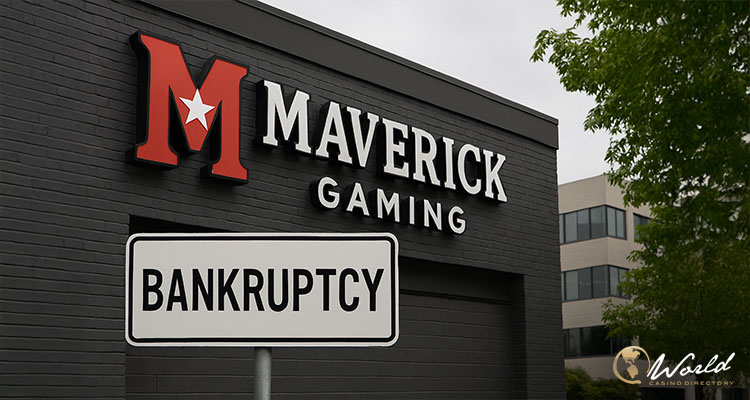The recent bankruptcy filing by Maverick Gaming, a Washington-based casino operator, has raised significant concerns about the potential role played by its financial backer, HG Vora Capital Management, in the company’s aggressive expansion and ultimate financial collapse. While the specifics of HG Vora’s influence on Maverick’s strategic decisions remain unconfirmed, industry insiders have highlighted the possibility that the investment firm’s involvement contributed to the company’s overextension, setting the stage for its downfall.
Founded by professional poker player Eric Persson, Maverick Gaming made headlines in recent years for its rapid expansion, acquiring multiple card rooms and casino properties across Nevada, Washington, and Colorado. The company’s ambition to grow quickly, however, came at a steep price, as it accumulated significant debt and faced rising operating costs. These factors left Maverick vulnerable to economic downturns and stiff competition from tribally-owned casinos in Washington, where Maverick’s operations were subject to tax and regulatory disadvantages.
According to Next.io, HG Vora’s involvement with Maverick Gaming began in 2019, when it became an important financial partner, providing the capital needed for Maverick’s acquisitions. This backing allowed the company to purchase Colorado casino operator CC Gaming LLC, a deal that helped accelerate Maverick’s expansion. At the time, Eric Persson praised HG Vora for its deep experience in the gaming industry, expressing confidence in their partnership as the company looked to build its portfolio.
However, as Maverick’s debt burden grew, the financial situation began to spiral. In 2021, the company refinanced a significant $365 million debt owed to HG Vora, though the investor’s presence in Maverick’s operations diminished after that. Despite the decrease in direct involvement, HG Vora remained linked to the company’s financial activities, participating in a refinancing round through Deutsche Bank. It was during this time that Maverick began engaging in sale-leaseback transactions to alleviate its mounting debt, a move that sources believe was encouraged by HG Vora to ensure repayment.
Expansion Strategy Leads to Financial Strain
The aggressive growth strategy led by Maverick—backed by HG Vora—saw the company acquire several properties in a short time. However, the company’s rapid expansion into new markets, combined with the rising operational costs, created a precarious financial foundation. Despite mounting pressure, Maverick continued to pursue acquisitions, including the $80.5 million purchase of Evergreen Gaming Corporation in 2022, even as financial analysts warned of the company’s unsustainable debt levels.
By mid-2024, the credit rating agency S&P Global had flagged Maverick’s debt as problematic, calling attention to its unsustainable capital structure. This situation, coupled with increasing competition from tribally-owned casinos in Washington—exempt from certain taxes and offering more favorable gaming conditions—put additional strain on Maverick’s business model.
In July 2025, Maverick Gaming officially filed for Chapter 11 bankruptcy protection, citing liabilities and assets valued between $100 million and $500 million. The bankruptcy marks a significant turn for a company that was once seen as a rising star in the casino industry. The fate of Maverick’s properties, which include hundreds of gaming tables and thousands of slot machines, remains uncertain, as the company works to restructure its debts and operations.
Despite its financial troubles, Maverick’s bankruptcy filing raises questions about the broader role that investors like HG Vora play in shaping the direction of gaming operators. With the ongoing bankruptcy proceedings, industry observers are looking closely at how activist investors influence the decision-making processes of companies, especially when those companies operate in heavily regulated sectors.
HG Vora’s involvement with Maverick Gaming is not an isolated case. The investment firm has also been making waves in other areas of the gaming industry, notably in its ongoing proxy battle with Penn Entertainment. In this high-profile case, HG Vora has attempted to influence Penn’s board by pushing for the appointment of its candidates, raising concerns over how activist investors can shape corporate strategies in the gaming world.


